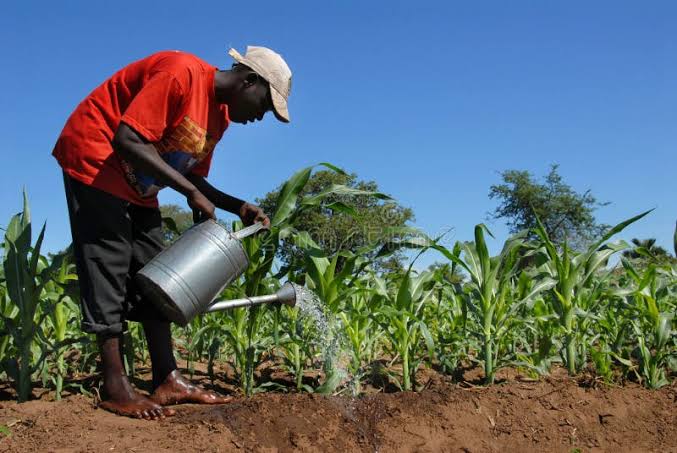By Dr Vincent Asogwa
Nigeria, Africa’s most populous country, faces the critical impact of a nationwide hunger protest that may repeat itself if care is not taken to avoid any impending doom. While the immediate causes of this protest are multifaceted, the most insidious and long-term threat lies in the government’s educational policy that has relegated agricultural science from a compulsory subject to an optional one in secondary schools.
This policy change has had a cascading effect on the country’s food production system, exacerbating the impacts of climate change and insecurity, and leading to a dangerous imbalance between food producers and consumers. Agricultural education is the bedrock of a sustainable food production system.
For decades, Nigeria’s educational system mandated agricultural science as a compulsory subject in secondary schools. This ensured that students, regardless of their future career paths, had a fundamental understanding of agriculture’s importance and practical knowledge of farming techniques. However, recent policy changes have made agricultural science an optional subject, leading to a significant decline in the number of students opting for it.
This shift has had dire consequences. Fewer students are now exposed to agricultural education, resulting in a diminished interest in farming as a viable career option. According to the Nigerian Educational Research and Development Council (NERDC), enrollment in agricultural science courses dropped by 40% between 2015 and 2020.
Consequently, the number of new, young farmers entering the sector has plummeted, leaving the country’s food production increasingly reliant on an aging population of farmers. The average age of Nigerian farmers is now over 60 years, compared to 42 in 2010, highlighting a demographic shift that threatens the sustainability of Nigeria’s agricultural sector and its capacity to meet the food demands of its growing population.
While poor educational policies have undermined the foundation of agricultural education, climate change, and insecurity have compounded the crisis. Nigeria’s agricultural sector is highly vulnerable to the effects of climate change, including erratic rainfall patterns, prolonged droughts, and extreme weather events. These challenges disrupt planting and harvesting cycles, reduce crop yields, and ultimately threaten food security. According to the Nigerian Meteorological Agency (NiMet), crop yields have declined by an average of 20% over the past decade due to adverse weather conditions.
In addition to climate change, widespread insecurity, particularly in the northern regions, has significantly hampered agricultural activities. Armed conflicts, banditry, and kidnappings have forced many farmers to abandon their lands, leading to a decline in food production. The International Crisis Group reports that over 3,000 farmers have been displaced in the past five years due to insecurity. The resultant decrease in agricultural output has pushed food prices to unprecedented levels, making it increasingly difficult for ordinary Nigerians to afford basic food items.
Consequently, the decision to make agricultural science optional in secondary schools has far-reaching implications beyond the immediate decline in agricultural interest among young Nigerians. It signals a broader neglect of the agricultural sector by policymakers, who fail to recognise the critical role of education in sustaining food production. This neglect has led to a series of adverse outcomes: Firstly, with fewer students studying agriculture, the sector is experiencing a shortage of skilled and knowledgeable farmers.
This shortage is particularly concerning given that the majority of current farmers are aging and retiring, with insufficient numbers of young people to replace them. Nigeria’s agricultural sector has lost over 50% of its workforce in the past decade, with many young farmers abandoning the profession (National Bureau of Statistics). Secondly, Nigeria’s inability to produce sufficient food domestically has led to increased reliance on food imports. This dependence makes the country vulnerable to global market fluctuations and foreign exchange volatility, which can further exacerbate food insecurity.
Food imports have increased by 300% in the past five years, costing the country over $10 billion annually (Central Bank of Nigeria). Thirdly, the reduced agricultural output, coupled with increased demand, has driven up food prices. The high cost of food is a major factor behind the hunger protests, as many Nigerians struggle to afford adequate nutrition for their families. The NBS reports that food inflation reached 22.95% in 2023, the highest in over a decade. Finally, the agricultural sector is a significant contributor to Nigeria’s economy, providing employment and income for millions of people.
The decline in agricultural productivity has led to job losses and economic hardship, particularly in rural areas where farming is the primary livelihood. The National Bureau of Statistics reports that rural poverty rates have increased from 10% in 2015 to 72% since 2022 due to declining agricultural incomes. Meanwhile, addressing the root causes of Nigeria’s hunger protests requires a comprehensive approach that includes revitalising agricultural education.
The government must recognise the importance of making agricultural science a compulsory subject in secondary schools once again. By doing so, they can reignite interest in farming among young Nigerians and ensure that the next generation is equipped with the knowledge and skills necessary to sustain the country’s food production system. Besides the policy changes in education, the government needs to invest in initiatives that support young farmers. This includes providing access to affordable land, credit facilities, and modern farming equipment.
Training programmes and extension services should be expanded to offer continuous education and support to both new and existing farmers. Furthermore, addressing the broader challenges of climate change and insecurity is crucial. The government has to implement policies that promote climate-resilient agricultural practices, such as the use of drought-resistant crop varieties and efficient water management techniques. Strengthening security measures in agricultural regions is also essential to ensure that farmers can safely cultivate their lands without fear of violence.
In conclusion, the hunger protests in Nigeria are a stark reminder of the urgent need for effective agricultural policies. The decision to make agricultural science an optional subject in secondary schools has had a devastating impact on the country’s food production system, exacerbating the effects of climate change and insecurity.
To reverse this trend and ensure food security for all Nigerians, the government must prioritise agricultural education and implement supportive measures for young farmers. Nigeria can overcome its current agricultural challenges and build a sustainable future for its citizens through a concerted and holistic approach. The Clock is Ticking.

Dr Asogwa, is a senior lecturer in the Department of Agricultural and Home Economics Education, Michael Okpara University of Agriculture, Umudike, and can be reached on [email protected] and 08034232630












